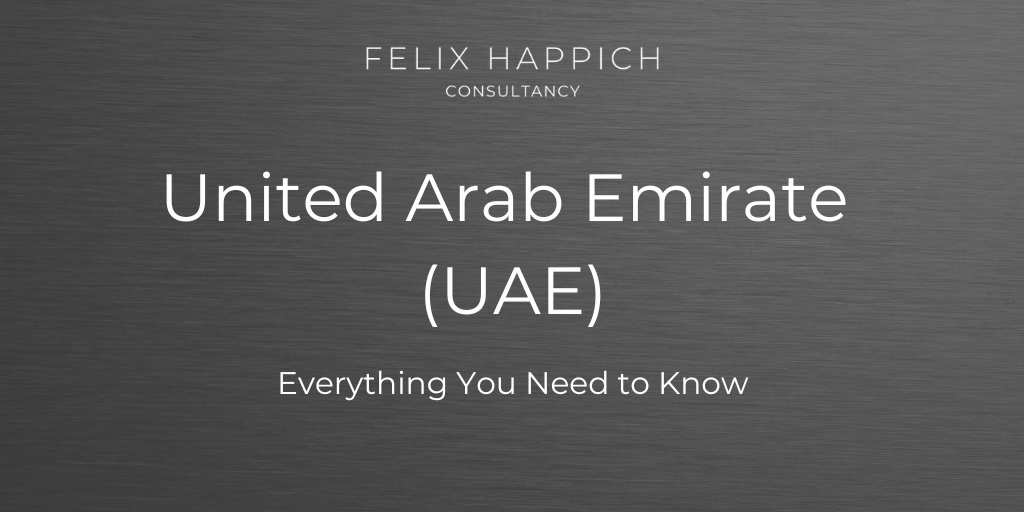History of the UAE
The History of the United Arab Emirates dates back to BCE 6000 when nomadic tribes resided there. Then, the Magan civilization came with people known as Sumerians. After the Magans, the most famous civilizations were the Iron Ages, which are known for their advancements in fortified settlements, irrigation systems, pottery, metalworking, and writing. In BCE 632, the history of the UAE changed tremendously when Islam strengthened in it.
The states of the UAE were known as trucial states, including Abu Dhabi, Dubai, Sharjah, Ajman, Umm Al Quwain, Fujairah, and Ras Al Khaimah, which were under the protection of the British. However, in 1968, the British government declared that it would leave the Trucial States in 1971. The ruler of Abu Dhabi, Sheikh Zayed bin Sultan Al Nahyan, and the ruler of Dubai, Sheikh Rashid bin Saeed Al Maktoum, started to work on the unification of these trucial states. Finally, with their efforts, the seven emirates unified and founded the United Arab Emirates on December 2, 1971. The UAE has several historical places, such as the Al Jahili Fort, Al Fahidi Historical Neighborhood, and Hili Archaeological Park. These places reflect the journey of several ancient civilizations and their cultural heritage.
Geography Of the United Arab Emirates
All seven emirates of the UAE are located in the Middle East, with the Arabian Peninsula on its southeastern border, Oman on the east, and Saudi Arabia on the south and west. On the northern border of the UAE lies the coastline of the Persian Gulf. The total area of the UAE is 83,600 square kilometers, which is known for its diverse landscapes of deserts, oases, mountains, and coastal plains.
Abu Dhabi, the capital of the UAE, lies in the center of the UAE. Moreover, it is the largest in terms of both area and population. All the offices of the federal government, along with the UAE president, are hosted in Abu Dhabi. Moreover, the geographical location of the UAE contributes to international trade as it connects Eastern countries with Western countries.
Flag Of the United Arab Emirates
The flag of the United Arab Emirates has four colors: red on the hoist in the vertical position and green, white, and black in the horizontal lines. Mohammad Al Maainah, a 19-year-old boy, designed this flag for a flag design contest in 1971. Every color comes with a specific meaning, such as red representing courage and power, green for goodness and agriculture, white for peace and purity, and black for dignity and authority.
The UAE has several other cultural symbols, such as the following:
- The UAE coat of arms, with a golden falcon, represents power, strength, and heritage.
- Falcon, the national emblem of the UAE, signifies the Bedouin way of life, strength, pride, and connection with nature.
- The Ghaf tree, the national tree of the UAE, signifies stability and peace.
- The Arabian Oryx, the UAE national animal, reflects resilience, survival, and beauty.
Population Of the United Arab Emirates
The United Arab Emirates has a population of 11 million, according to the Worldometer’s 2024 statistics. This population comprises 88% foreigners and 12% of native Emiratis. The UAE faces a steady population growth due to its extensive infrastructure development and technological advancements. From 2002 to 2010, there was a 13% annual increase in population and a 1.2% increase annual increase in population after 2019.
In terms of religion, the UAE comprises 76% Muslims, 9% Christians, and 15% from other religions, such as Hindus and Buddhists, as per the Ministry of Economy, UAE census 2005. Dubai comprises approximately 55% of the population, Abu Dhabi has 33%, Sharjah has 10%, and the rest of the emirates collectively contain 10%. The birth rate in the UAE is about 10.7 births per 1000, and the death rate is 1.5 deaths per 1000. These rates are low as expatriates don’t settle here permanently.
Religions in the United Arab Emirates
The official religion of the United Arab Emirates is Islam. However, there are expatriates from several religions, such as Christians, Hindus, Buddhists, and other faiths. In terms of population, the UAE is 76% Muslim, 12% Christian, 6.6% Hindu, 2% Buddhist, and the rest of the population comprises diverse religious groups as per the reports of the US Department of State, 2010. The other religious groups include the Sikhs, atheists, agnostics, Baha’is, Jews, and Zoroastrians.
The UAE government promotes religious tolerance through its anti-discrimination legislation and educational reforms. Along with mosques, they have 40 churches, two Hindu churches, a Sikh Temple, and a Buddhist Temple. However, the cultural norms, personal conduct, family law, business practices, and legal framework are derived from Islamic principles. In this way, the UAE government is promoting a multicultural and multi-religious society, which is known as the Abrahamic Family House.
Language in the United Arab Emirates
The official language of the United Arab Emirates is Arabic. The schools and formal business settings have Modern Standard Arabic. In informal or local settings, people use Gulf Arabic. However, English is the most commonly used language in the UAE. It helps people from different countries communicate and interact regarding their business. Moreover, there are several other languages, such as Urdu, Hindi, Persian, Malayalam, Tamil, Bengali, and Tagalog.
Culture of the United Arab Emirates
The United Arab Emirates is a multicultural community that has its foundation in Islamic traditions and Bedouin customs. Moreover, the UAE provides a blend of historical values and modern practices, such as the following:
- Networking and face-to-face communication are prominent cultural values.
- Emphasize the hierarchy for the decision-making process in both familial and business matters.
- Hospitality, generosity, and a welcoming nature make the UAE one of the most successful business communities in the world.
Architecture of the United Arab Emirates
The most renowned and impressive landmarks that reflect the architecture of the UAE are the following:
- Burj Khalifa
- Sheikh Zayed Grand Mosque
- Burj Al Arab
- Museum of the Future
- Louvre Abu Dhabi
- One Za’abeel
Climate of the United Arab Emirates
The UAE faces high temperatures and low precipitation. There are mainly two seasons in the UAE. The summer starts in April and lasts up to September. In this season, temperature exceeds 40°C (104°F) with very low humidity and minimal rainfall. The winters last between December and February, in which temperature touches 12°C (54°F). It has comfortable humidity levels and some rainfalls.
Food of the United Arab Emirates
The food culture of the United Arab Emirates is influenced by different cultural heritages, such as the Bedouin, Arabian, Persian, Indian, and Levantine. The most famous dishes of the UAE’s food culture are the following:
- Al Harees
- Al Machboos
- Luqaimat
- Balaleet
- Seafood
- Arabian Coffee
Education of the United Arab Emirates
The Education system of the United Arab Emirates comprises three main levels: Primary, Secondary, and Tertiary. The Ministry of Education and the Abu Dhabi Department of Education and Knowledge (ADEK) regulate the education system in the UAE. In terms of primary education enrollment and literacy indexes, the UAE lies in the top position in the world, as per the Global Gender Gap Report. The UAE education system is ranked 28th in the US reports. Business education is offered in several UAE universities, such as the United Arab Emirates University, Zayed University, American University of Sharjah etc.
Health Care System of the United Arab Emirates
The UAE’s healthcare system, including both private and public sectors, is regulated by the Ministry of Health and Prevention, the Abu Dhabi Department of Health, and the Dubai Health Authority. They provide a high-quality and advanced medical system that is free for UAE residents and provide insurance plans for foreigners. The infrastructure of the UAE health system is one of the best in the world. The hospitals in the UAE have 2.06 beds per 1,000 inhabitants as per Statista reports, 2024. However, they faced a lack of nurses, with only 31 nurses per 10,000 population, as per reports of the World Health Organization (WHO), 2024.
Wages and Rents in the United Arab Emirates
The United Arab Emirates doesn’t have standardized minimum wages. These vary with profession, skill level, and location. However, the average salary for a common profession in Dubai is AED 15,700, as reported by the Time Doctor. In finance and accounting, the monthly salary ranges between AED 10,000 and AED 130,000, as per reports of Expatica.
Inside the cities, the rent of a one-bedroom apartment is about AED 7,345, and outside the city, it is about AED 5,043, as per reports Wise. In the case of studio apartments, the rent ranges from AED 5,000 to AED 10,000, as reported by Internations.
Economy of the United Arab Emirates
The economy of the UAE has 70% of its GDP from non-oil sectors, such as tourism, aviation, financial services, and real estate, as per reports of the Department of Foreign Affairs and Trade, 2024. However, in the past years, 90% of the UAE’s revenue was generated by oil and gas resources. The Dirham is the official currency of the UAE, which is pegged to US dollars at the rate of 3.6 AED to 1 dollar. The strategic government and financial reserves resulted in a GDP of AED 430 billion in 2024, with an increase of 3.4%, as reported by Reuters.






